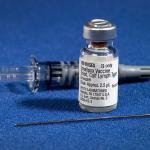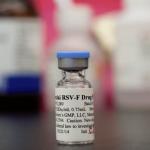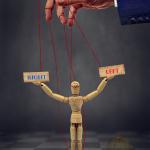In June, the recently downsized CDC vaccine advisory panel voted to stop recommending flu vaccines containing thimerosal. Health and Human Services Secretary Robert F. Kennedy Jr.
vaccination
The question of whether current childhood vaccines are safer than the diseases they prevent continues to spark debate, despite the answer being as close to “settled science” as any.
From the onset of the COVID-19 pandemic, researchers have been engaged in forecasting the potential economic and human costs associated with an uncontrolled large-scale pandemic, as well as the corresponding benefits that could be derived from an
The new booster, available since September, is effective against the currently dominant SARS-CoV-2 variant in the U.S., JN.1.
It is not every day that drug development results in a breakthrough with the potential to eliminate an often serious and sometimes fatal disease, but one of those days occurred early last month.
Is it possible to ever persuade the politically-polarized segment of the vaccine-resistant population to take the jab – thereby avoi
In 1768 Russia (and most of Europe) faced a devastating smallpox epidemic. They didn’t have vaccines then, but there was knowledge of a forerunner called inoculation (or variolation), where pus is taken from a smallpox patient and injected i
Late on August 29, 1892, the SS Moravia crept into NY Harbor carrying two passengers with cholera, seeding the 1892 American cholera epidemic.











